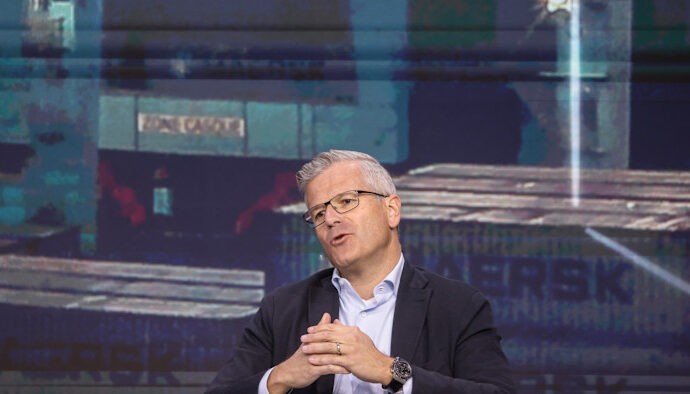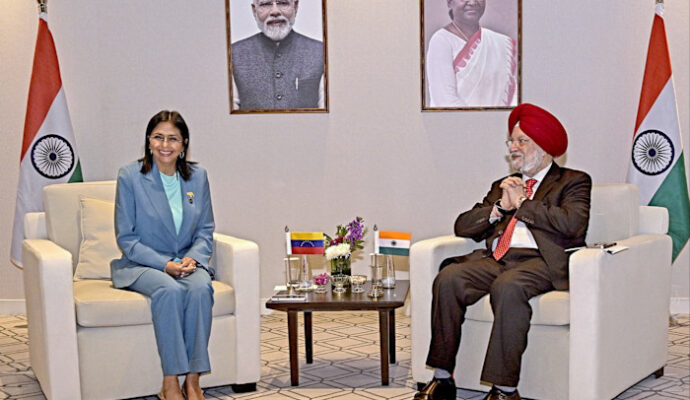Good morning. All eyes now on the prime minister’s speech on Independence Day this Friday. He will certainly talk about Operation Sindoor. I wonder if he will also mention India-US relations. Tell me what you think.
In today’s newsletter: has India’s tech sector missed the AI bus? But first, the controversy over blended fuel.
Note: India Business Briefing will be off this Friday on account of the national holiday. I wish you a happy Independence Day and all the joys of a long weekend.
Blend, baby, blend
On July 24, when the government announced India had met its target of raising the rate of ethanol blending with petrol to 20 per cent an impressive five years ahead of schedule, it was hoping for loud applause. What it got instead was a consumer backlash, the likes of which it had never experienced before. In the weeks since, the protest against blended fuel has only grown, with even ruling party supporters speaking out against it on social media.
The government’s argument is that blending petrol with ethanol will help reduce crude oil imports, create green jobs and help farmers, because the ethanol is made from maize or by converting agricultural residue. The backlash is from car owners concerned that the blended fuel decreases mileage and corrodes or damages crucial parts, forcing them to spend more on fuel and repair or maintenance. Their angst is further exacerbated by the fact most car owners are in the dark about how much ethanol is actually in the fuel being pumped into their vehicles. In an unusual communication error, the government conceded the blended fuel might cause a “slight dip” in mileage, between 1-2 per cent in new cars, and up to 6 per cent in older models, but insisted this could be managed by routine servicing. That led to further outrage.
The blended fuel issue adds to the long list of grouses that vehicle owners have been harbouring against the government. Despite paying substantial amounts in registration fees and road tax, Indian car owners feel they are getting very little in return. Roads flood every year during the rains, damaging vehicles; most cities experience awful traffic jams every day; and even though the government has been buying cheaper oil from Russia, the savings have not been reflected in retail fuel prices. Politically, this backlash comes at a terrible time for Prime Minister Narendra Modi’s government, which is trying to control the narrative around the lack of a trade deal with the US. The people upset about the ethanol issue — urban, middle class men — form a significant chunk of its voting base, and are usually the sections that speak up for the government. Their wrath notwithstanding, the government is likely to push ahead with its plans for more blending. Its new target is 27 per cent.
Do you think the government is right in pushing blended fuel? Hit reply or email me at indiabrief@ft.com
Recommended stories
What Vladimir Putin wants from Donald Trump at the Alaska summit later this week.
BlackRock and Vanguard lead the US asset manager “super league” dominating Europe.
In AI news: Nvidia and AMD have agreed to pay 15 per cent of China chip sale revenues to the US government. And OpenAI unveiled its long-awaited GPT-5 model.
How Pakistan wooed Trump and rattled India.
Some good news for Indian whisky drinkers, as tariffs and trade deals disrupt the industry.
A grand new government quarter glimpsed through the Delhi haze.

Join 250+ policymakers, industry executives and investors at the Energy Transition Summit India on September 16 and 17 in New Delhi. Register for a free digital pass here or enjoy 20 per cent off your in-person pass here.
IT’s late on AI
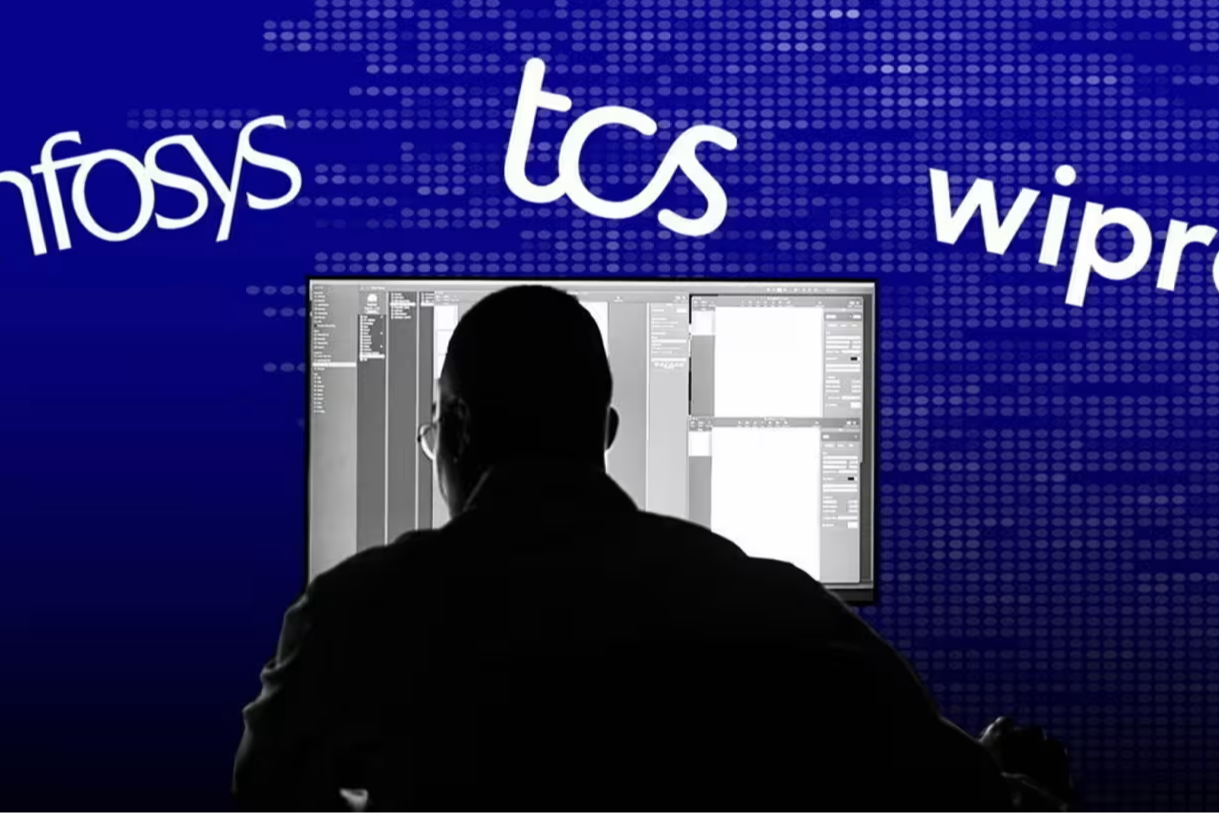
Has India’s tech sector already lost the artificial intelligence race? Despite having one of the world’s largest pools of software engineering talent, the country has been a relative latecomer to AI, and has no product innovation to boast of. Although big companies in the sector are working on numerous AI projects (hundreds in Infosys alone, according to chair Nandan Nilekani) these are mostly in the “agentic” AI space or involve creating products for clients on other companies’ large language learning platforms.
Last month, Infosys said it had built 300 agents, and it recently announced AI implementation deals with German energy provider Eon, Norway’s DNB Bank and the UK’s Lawn Tennis Association. Similarly, Aarthi Subramanian, the new chief operating officer at Tata Consultancy Services, said the Mumbai-based company had seen “strong demand” for AI and analysing data. TCS has built a product for AmTrust, a New York-based property and casualty insurer, to help brokers generate personalised quotes quickly. None of this is at the cutting edge of technology, at a time when the US, China and now South Korea are racing ahead in building sophisticated models.
According to estimates published last year in a joint report by Boston Consulting Group and Nasscom, the IT industry trade body, India’s AI market is expected to expand from up to $9bn in 2023 to as much as $22bn by 2027. Last year, the government launched its IndiaAI Mission to promote development (China has had a plan since 2017) and earmarked about $1.2bn to help increase AI capabilities and infrastructure over five years. But so far we haven’t heard any buzz about impending big breakthroughs.
On the contrary, the AI news in the industry is largely about how disruptive it has been. Companies are struggling to get new projects as clients reallocate funds to their AI initiatives. This has hit the top line of the listed players in the sector, shrinking revenue growth last quarter and resulting in job losses. Almost none of the big companies are investing heavily in R&D in AI or building large language models themselves, Anirudh Suri, non-resident scholar at the Carnegie India think-tank told my colleagues Chris Kay and Krishn Kaushik. “In a way, they’re riding the wave of AI, but not planning heavily for a scenario where the wave actually disrupts them or their business model.”
Ever since Indian tech companies emerged as a major support service in the aftermath of the Y2K scare, they have been criticised for not demonstrating technological innovation or creating world class products. For now, it looks like that narrative will continue into the AI wave too.
What’s your view on Indian tech sector’s AI strategy? Hit reply or email me at indiabrief@ft.com
Go figure
Singapore’s stock exchange is poised for a revival with tens of companies in talks to list, according to its chief executive. This comes after decades of sluggishness during which several companies withdrew their listings. The exchange posted its strongest results in 25 years. Here’s a look.
$1bn
Revenue
12%
Revenue growth
8%
Profit growth
My mantra
“For me, starting the day early is important. I wake up between 4.30am and 5am, dedicating the first 45 minutes to physical activity. This practice gives me the necessary balance and energy to approach the day’s tasks more effectively. While the workday can often be long, I find it critical to prioritise physical wellbeing at the start, as it strengthens my ability to engage in more purposeful mental efforts throughout the day.”
Atul Soneja, chief operating officer, Tech Mahindra
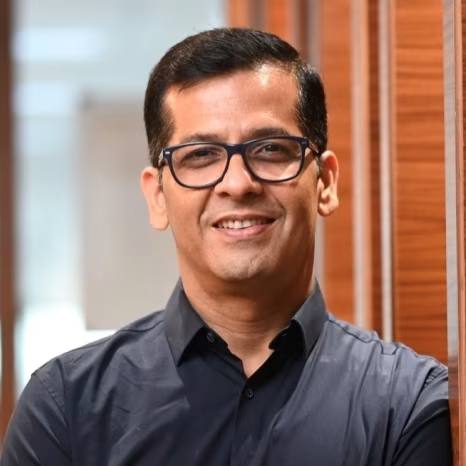
Each week, we invite a successful business leader to tell us their mantra for work and life. Want to know what your boss is thinking? Nominate them by replying to indiabrief@ft.com
Quick question
Do you think India’s economy will do well even without a US trade deal? Tell us here.
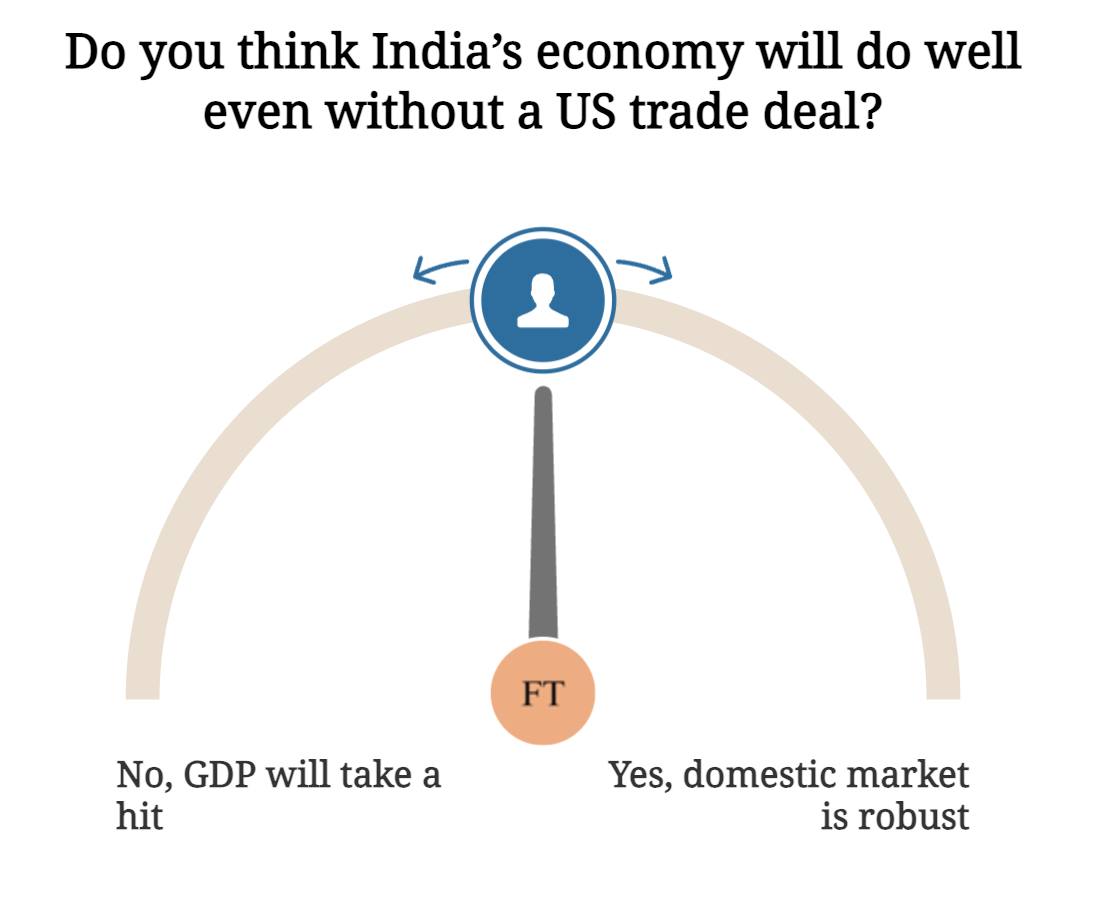
Buzzer round
On Friday, we asked: Gianni Infantino is president of world football’s regulatory body, Fifa. What are Swiss politicians hoping to enlist him for now?
The answer is . . . to help sway Donald Trump for a better trade deal for the country.
Ram Teja was the first in with the right answer, followed by Aniruddha Dutta, Prasanna Venkatesh and Padmanabha Misra. Congratulations!
Thank you for reading. Today’s India Business Briefing was edited by Mure Dickie. Please send feedback, suggestions (and gossip) to indiabrief@ft.com.

